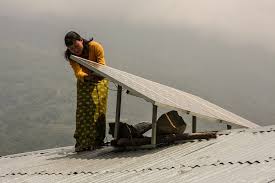Is our infrastructure a COVID winner?
The Covid-19 pandemic has starkly highlighted the inter-relatedness and inter-connections between physical infrastructure, critical utilities and services, and the socio-economic web we live in.
 This global pandemic has highlighted inequalities within countries and between countries. Low income, marginalized, excluded groups have suffered disproportionately from the disease itself and from the impact of preventative measures. Even within low-income groups, women and children tend to suffer more than men.
This global pandemic has highlighted inequalities within countries and between countries. Low income, marginalized, excluded groups have suffered disproportionately from the disease itself and from the impact of preventative measures. Even within low-income groups, women and children tend to suffer more than men.
The economic and social disruption caused by the pandemic provides a unique opportunity to re-think how we build system resilience. In infrastructure, the low-carbon transition taking place in the energy sector, driven by technology innovation, can use less capital-intensive, distributed energy resources for electrification of remote communities, microgrids for backup generation in case of grid failure. Supply chains can be restructured to become more independent of global supply chains that increase carbon emissions.
Important welfare benefits and improvements in the quality of life of women and men can be realized through these actions. Such a transition has important implications for gender equality and women’s empowerment. These are pathways to increase women’s participation, employment and livelihood opportunities, especially in the case of community energy systems.
A just transition provides opportunities for decarbonizing health care facilities and operations. We can power hospitals with renewable energy and microgrids as backup generation, use low or zero carbon fleet vehicles, introduce digital health services for remote communities, people with disabilities, and much more.
A transition to low-carbon infrastructure, contributes to strengthening resilience of healthcare systems, reducing the health carbon footprint, enhancing health equity and achieving universal health coverage.